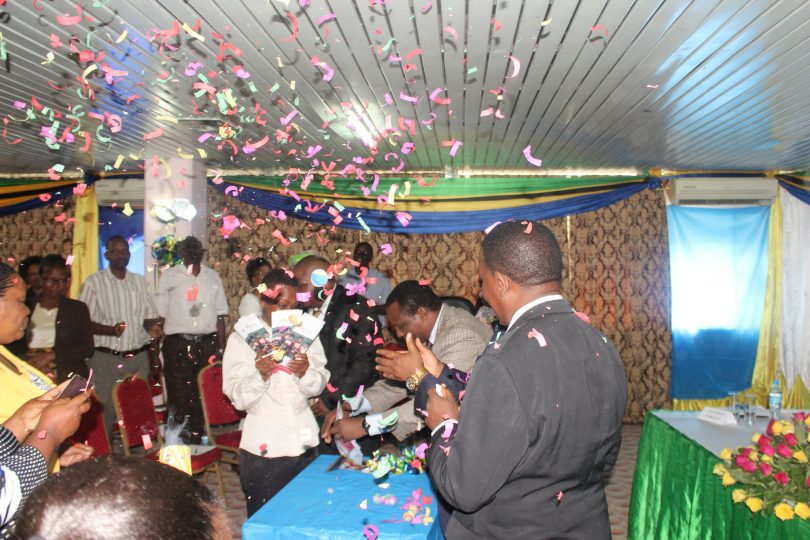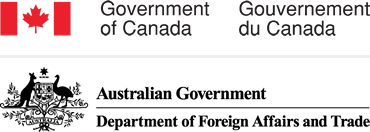In the efforts to #EndChildMarriage, the GIRLS inspire project was launched in Tanzania in May 2016. The event was hosted by the Ministry of Education and Vocational Training – Government of Tanzania, the Commonwealth of Learning (COL), the Institute of Adult Education (IAE), Kiota Women Health and Development (KIWOHEDE) and Small Industries Development Organization (SIDO), the launch commemorates the GIRLS Inspire project to empower women and girls in Tanzania and end the cycle of child, early and forced marriage (CEFM).
Below you will find the transcript of the Welcoming Remarks made by the Director, Institute of Adult Education, Dr. Fidelice Mafumiko.
Welcoming Remarks
Guest of Honour, Mr. Erasmus T. Rugarabamu, Acting Permanent Secretary Ministry of Health, Community Development, Gender, Elderly and Children.
Your Excellency Ambassadors from Canadian Embassy; Japanese Embassy; IAE Council Chairperson, Prof. E. Bisanda; COL Senior Adviser, Women and Girls and Team Leader, Education Sector, Mrs. Frances Ferreira
Representatives of Development Partners; Directors and Heads of Department of Government Agencies and Institutions,
Representatives of CSOs, Academicians and Researchers
Ladies and Gentlemen…
May I, on behalf of the Institute of Adult Education (IAE), welcome you all who have gathered here to witness a very important event on the launching of the project on Preventing Child, Early and Forced Marriages (CEFM) in Tanzania. Thank you very much for your attendance. I wish to also extend my special thanks to the Commonwealth of Learning and Canadian Government for their technical and financial support to the IAE, KIWOHEDE and SIDO for all the CEFM project preparatory activities. It is also my hope that we will continue working together in the whole process of the CEFM project implementation.
Distinguished Guest of Honour:
I understand you have rescheduled a number of activities and appointments to attend this occasion. To us it is a great honour and l would like to thank and assure you that we cherish this rare opportunity of having you with us in this launching event.
Let me also take this opportunity to extend my thanks to our distinguished participants for being with us in this day, this is because you value and care about Tanzania educational endeavors. May l on behalf of the Institute Management and the workshop organizers extend a warm welcome to you all. Karibuni sana
.
Guest of Honour
My responsibility today is strictly confined around two activities. Firstly to set the direction and focus of this event, and secondly, to welcome you to grace the opening of this launching occasion. Starting from the first task, let me give a very brief profile of the Institute since l believe that not all of us know much about the IAE’s roles and functions. It is within this profile that l shall also talk about the preventing Child Early and Forced Marriages (CEFM) initiative.
The Institute of Adult Education started in 1960 as an extramural section under Makerere University-Uganda, under the University of London, based in Tanzania. Later in 1963 it became a department of Adult Education placed under the University of Dar Es Salaam. Its main tasks were extra mural studies, week end seminars and open schooling. In 1975 the department became an autonomous institution by Parliamentary Act No. 12 of 1975 under the then Ministry of National Education, currently the Ministry of Education, Science and Technology (MoEST).
By that Act the Institute of Adult Education became a centre for learning, research and training in adult education and its services extended to the grassroots’ level through regional centres established in each of the 21 regions of the Tanzania mainland. As provided by the Act, the Institute of Adult Education mandate can be summarized as follows:
- Develop and implement programs for the training teachers and administrators of adult and non-formal education
- Provide advice in curriculum development and preparation of syllabi or programs for adult education.
- Promote and engage in research on Adult Education and related fields
- Design and conduct mass education programmes, e.g., health education, HIV & AIDS, human rights, gender & civic education.
- Provide education by open and distance learning.
- Provide consultancy and advisory services to individuals, agencies and institutions engaged in adult education and open and distance based learning programs.
Guest of honour
The Institute is charged with the responsibility for promoting access, equity and quality education to all Tanzanians, especially to those who cannot be reached by the formal systems. In this case therefore, the Institute has been constantly involved in designing and implementing community based educational projects and programmes to empower communities to address various challenges brought about by socio-economic reforms taking place in the world.
It is within this context that, the IAE have been working with different partners to fulfill this educational demand for sustainable development. Some of partners that have been working with the IAE include UNICEF, UNESCO, BRAC Maendeleo Tanzania, World Bank, SADC, and COL. The IAE in partnership with UNICEF developed the Integrated Post Primary Education (IPPE) Programme. The IPPE programme is built on three pillars that are; integration of learning areas, competence based training, and flexible mode of delivery.
The IPPE model has captured interests of different stakeholders at all levels because of its flexibility nature in meeting the needs of different learners. The model allows different out of school learners to access learning opportunities that could have not be easy to get in other forms of education. The IPPE model was adopted in developing Alternative Learning for Out of School Teenage Mothers, which was piloted in Shinyanga region with support from UNESCO and has registered greater impact. Again using the experiences learned from this programme, the CEFM project, which we are launching today, has adapted the same model to reach disadvantaged women and girls in priority communities in Rukwa, Dodoma and Lindi regions.
Guest of honour
The selection of the regions to pilot the CEFM project was based on the criteria that, the regions form part of the disadvantaged socio-economic communities that are victim to gender imbalance conditions as well as low interventions to address issues of child early and forced marriages. The regions also constitute a high rate of Out of School children and youth compared to Tanzania average of 23.5 and 40.9 for primary and secondary school levels respectively. The statistics show that, Rukwa stands at 35.5 and 48.1; Dodoma at 32.1 and 45.6; and Lindi at 26.6 and 45.6 for primary and secondary schools respectively. The CEFM project targets 3000 girls who will be trained on vocational skills, life skills and secondary education. It also intends to create awareness among 10,000 community members to enable them to support girls and act as change agents.
Distinguished Guest of Honour
There is a growing need for post primary education in Tanzania due to expansion of primary education provision. Relative to other Sub-Saharan African (SSA) countries Tanzania has been cited for its remarkable achievements in expanding enrolment and gender parity at the primary education level at 40% as compared to 20% average for SSA. However, the achievements in learning outcomes at all levels of education remain to be a great challenge.
According to 2012 demographic census it is estimated that about 3.5 million children and youth aged 7-17 are out of school in Tanzania. During this census it was projected by 20015 the number out of school children and youth will reach 3.9 million. While both girls and boys are affected by high dropout rates, female survival in schooling is hampered by unique problems caused by a complex interplay of social-cultural and biological factors. Among these are forced marriages, early marriages and pregnancy related factors.
The statistics show that, at the age 15, boys and girls have equal chance of being excluded from formal education. Below this age, boys are more likely to be out of school, but above this age and increasingly so as children get older, girls are more likely to be out of school. The subsequent analysis for this issue shows the same trend in girls at upper secondary school age. These evidences justify a need for special attention to girls’ education focusing on out of school interventions.
Distinguished Guest of Honouor
The CEFM project is designed for the purpose of improving the quality of lives of girls and young women in Tanzania through enhanced delivery of open distance and technology based education and training. It covers those programmes of education and training which build upon primary and basic education and offer girls and women a continuing education and training experience by providing academic knowledge, pre-vocational skills and supportive life skills.
The CEFM is about developing appropriate systems to support and facilitate girls and women empowerment to voice their rights and demands related to gender needs and concerns through the use of open distance and technology based tools. It also aims at establishing bond and support systems among girls and young women on their needs and concerns through female network and peer-to-peer collaboration.
Distinguished Guest of Honour
The CEFM project is an initiative that has come at a time where provision of inclusive and quality education is emphasized. The Sustainable Development Goals insist to the governments to ensure that, all girls and boys complete free primary and secondary schooling by 2030. The goals also aim to provide equal access to affordable vocational training, and to eliminate gender and wealth disparities with the aim of achieving universal access to a quality higher education.The same has been insisted by targets set by EFA goals, MKUKUTA and others of which the CEFM project is highly emphasizing. It is within this background that l request you stakeholders especially those at decision making levels to create enabling environment for different stakeholders to take proactive role to participate in supporting this initiative at different contexts.
Distinguished Guest of Honour
I would like to end my remarks by requesting all institutions or organizations represented here in this forum to actively share and exchange ideas, experiences, knowledge and skills on the viability of this initiative. It is my expectation that the information gathered will help to enhance quality of the project in one way or another hence the successful implementation of CEFM in the country.
Thank you for your attention and God bless you all.



